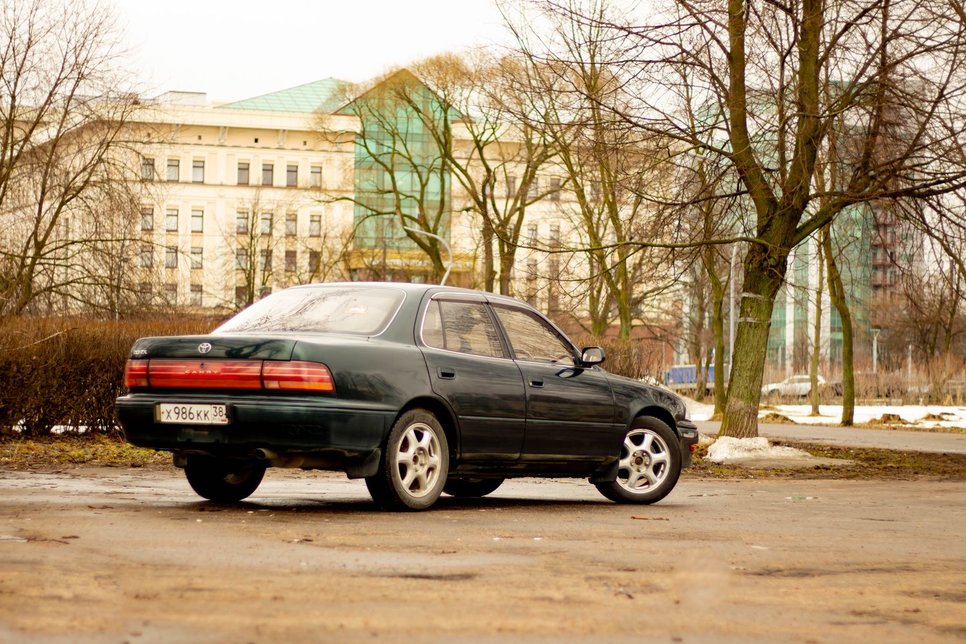What happens to recycled cars?
 In our country, cars “die” slowly. The average global share of the fleet disposal is 6–7% per year. And in Russia, this figure is significantly lower – 2.5%. The reason is obvious – there is no money from the people, so the old one is patched up.
In our country, cars “die” slowly. The average global share of the fleet disposal is 6–7% per year. And in Russia, this figure is significantly lower – 2.5%. The reason is obvious – there is no money from the people, so the old one is patched up.
Every year, millions of cars accumulate in the world that will not return to the roads, and something needs to be done with these cars. One option is to simply send them to a landfill. Thus they did in the old days. As a result, a huge number of cars accumulated in abandoned areas, the processing of which is not always economically profitable. The problem quickly reached the state level. There are two solutions: to subsidize the utilization at the expense of the budget and include the utilization fee in the cost of new machines.
The state is interested in the fact that citizens acquire new vehicles, and the junk is sent for recycling. At the same time, everyone wins: the ecology improves, production is loaded, taxes are received. For this reason, the state vehicle recycling program was established in our country, which began its operation in 2012.
By the way, the norms in force abroad regulate the degree of future processing of a car, and when developing vehicles, designers take this parameter into account. Developers of BMW cars claim that 95% of modern BMW materials will go into production in the future.
Recycling machines are well established in the USA and Japan. For example, in the US, about 95% of the outdated cars are dismantled and sent to enterprises. Interestingly, this is one of the most efficient segments of the economy in terms of recycling. Overseas, recycle 75% of newspapers, 51% aluminum cans, 22% glass containers and 10% consumer electronics.
In Japan, the owner of an old car must pay a large amount for recycling. As you know, it is for this reason that it is profitable for residents of the Land of the Rising Sun to sell a car cheaply and not spend money on its disposal. In Russia, unlike in Japan, you can get some money for a “dead” car. More precisely, a discount on the purchase of a new car. Or a fee for scrap.
Whether the Russian authorities are thus able to effectively put materials into recycling is a debatable question (the processing industry in our country is not very developed). But for Russian car manufacturers, the recycling program has become an additional way to raise sales of new cars in the context of the ongoing crisis. And for citizens – financial support for the purchase.
What will the discount be?
Any Russian who plans to buy a new car made in Russia can take advantage of the state recycling program. The car must be equipped with: have a body and engine, gearbox, battery, interior elements, wheels. It will not be possible to buy some kind of wreck on the cheap and immediately exchange it for a certificate, since a tenure period of at least six months is required. The car must be removed from the register in the traffic police, to show documents on it and a civilian passport.
Discount depends on the type of car, specific brand and model.
Type t / s. Discount rate on the recycling program, thousand rubles.
Passenger 40–175
Bus 100–300
90-350 truck
The recycling program has been extended to 2019 and will most likely continue to operate. The action algorithm is simple. You need to contact the dealer from whom you plan to buy a car. He will prompt the organization, which is engaged in recycling. There will also be issued a certificate that is needed to get a discount when buying a new car.
Beware of scams! There have already been cases when dishonest people collected car junk, handed it over for recycling, but did not issue certificates. Therefore, it is better to follow the recommendations of the dealer who is interested in the client coming to him.
Are there gray schemes around recycled cars?
Any Russian may have justified suspicions: maybe from the recycled cars do the “designers” and sell them again? There are no legal ways to legalize junk as a vehicle. Of course, there are options. For example, they substitute other documents (for this, it will be necessary to interrupt body numbers) or go through a complicated judicial procedure for taking possession of the “found” property.
Is the game worth the candle? Most often not. Property is cheap, cars are in poor condition. To legalize them is simply unprofitable.
Parts from recycled machines go on sale?
There is a shadow business in the sale of spare parts from machines handed over under the state recycling program. The algorithm of legal sale of parts is not implemented, so people close to the process are privately filmed. But the profit is still small. The fact is that the worn out cars, as a rule, are rented out. Body elements have been repaired more than once; there is rust, components and assemblies for the most part are already very worn out.
The exception is made only by the cars which have strongly suffered in road accident. There is no sense in restoring them, but there are good details on them.


